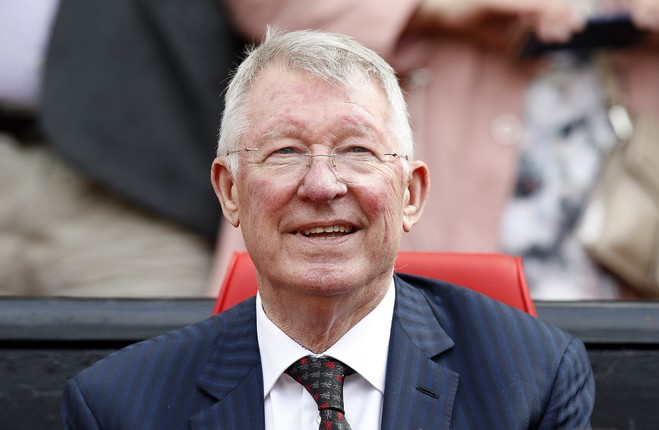1. Rendall wrote, toward the end of his time with McMillan – after a world title had been won and lost, money made and disappeared, boxing’s corrupt organisation exposed as a moral sewer within which the men who fight are fodder for unscrupulous subcontractors – about the pull of nostalgia, the lure of one last fight or one final comeback that is boxing’s most intoxicating drug: “For a moment it was almost possible to believe – or if not to believe, to suspend judgment. I mean, it’s what everyone dreams of, isn’t it? Not to wallow in cherished memories, but for the spirit of those same memories somehow to come back, anew, and start living again, as if time were cyclical.”
There will always be boxing while there is deprivation, and it will always be watched while there are people who can’t otherwise say what fighters’ punches allow them to. The pull is the same for me now, in a different front room, tearing myself out of bed at 3 or 4am to watch fights live from Las Vegas or New York, sitting cross-legged on the floor too close to the television, its volume so low as to make the pictures play out in near-silence. New boxers move among the outlines of those who fought before them, escaping nothing.
Declan Ryan writes superbly about boxing for the Guardian.
2. I think the legacy is that we changed sports radio here, and that includes everybody who has ever worked for Off The Ball and specifically the Second Captains lads as well. The culture of sports talk radio could have been American style phone-ins, but we decided we weren’t going to do that, and now everybody has copied us.
In what will be of interest to any Irish sports fan: Paul Kimmage meets Ger Gilroy. (€)
3. While the coming weeks and months will remind just how reticent and even paranoid most inter-county GAA set-ups and particularly managers can be, O’Gara has remarkably been able to continue speak forthrightly on all matters rugby and more on such platforms as this paper, Off The Ball and Virgin Media without seeming to compromise his energy, focus or, most importantly, his team.
Only someone with his charisma, authority, and judgement would be able to pull it off.
Last Friday’s column for this paper typified it, letting us — and Leinster — know that he’d moles informing him that Leo Cullen’s set-up did a full-on training session with their Champions Cup team the day before their recent Rainbow Cup game against Munster.
He took his into his own team’s training ground too, again something that would be anathematic to a county set-up this side of a breakthrough.
How they’ve become a closer unit without being the finished product. The previous week he outlined how they draw vertical red lines across the field at five-metre intervals and encourage them to run straight and hard to enact their much-heralded Keep The Ball Alive philosophy.
In doing so, O’Gara is exhibiting a certain assuredness but also a generosity too.
Allow Kieran Shannon of the Irish Examiner help you learn more about the coach Ronan O’Gara.
4. That morning – Saturday May 5 2018 – Sir Alex was taken by ambulance to Salford Royal Hospital with bleeding on the brain. Doctors initially estimated his chances of survival at 20 per cent. He was given emergency surgery, and while recuperating, he lost the ability to speak; an experience he describes as “a horrible moment”. “I was sitting talking to my two grandsons in visiting hours, then all of a sudden, my voice just stopped. For 10 days I never got it back,” he recalls.
Just as unsettling, he felt a fog spreading over the memories he’d been delving through so pleasurably with Jason. When therapists encouraged him to write down significant moments from his past in an attempt to stem the fade, he found he could barely even scratch the word “remember” on to the inside cover of his crossword book.
Ahead of the release of a new documentary film on his life, Alex Ferguson sat down for an interview with Robbie Collin, the Telegraph‘s terrific film critic. (€)
5. Rob Burrow can no longer talk and yet, on a rainy bank holiday evening at home in Pontefract, he answers another of my questions about life and death. It feels almost magical as his familiar Yorkshire voice fills the room even though Burrow is smiling gently rather than moving his lips. “I don’t think you ever know your inner strength until you get told you are dying,” says the former Leeds Rhinos rugby league international who is a prisoner in his own body. “I would never have known I could be this positive when getting the news.”
The 38-year-old, who won eight Grand Finals and 20 international caps during a long and memorable career, has a ravaging form of motor neurone disease. He and his wife, Lindsey, who has been with him since they started going out at the age of 15, received the shattering diagnosis in December 2019. The prognosis was bleak because Burrow was told his life expectancy, while declining rapidly from an incurable disease, would be unlikely to stretch beyond two years.
Don McRae of The Guardian meets the remarkable Rob Burrow.

